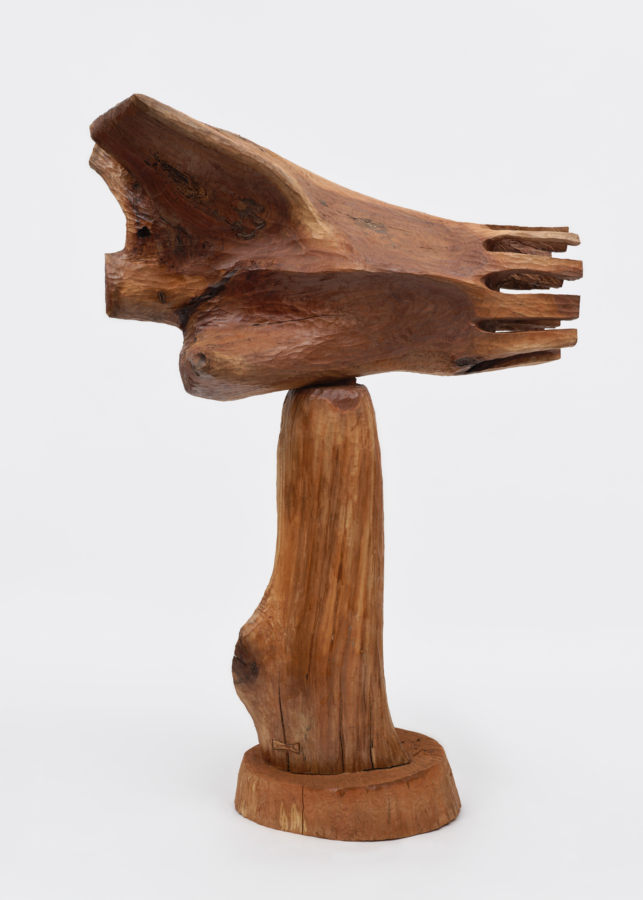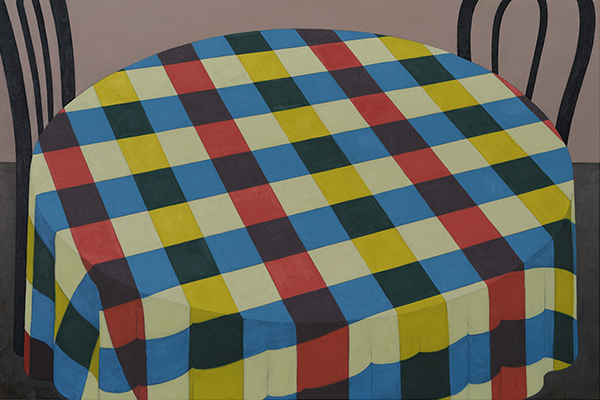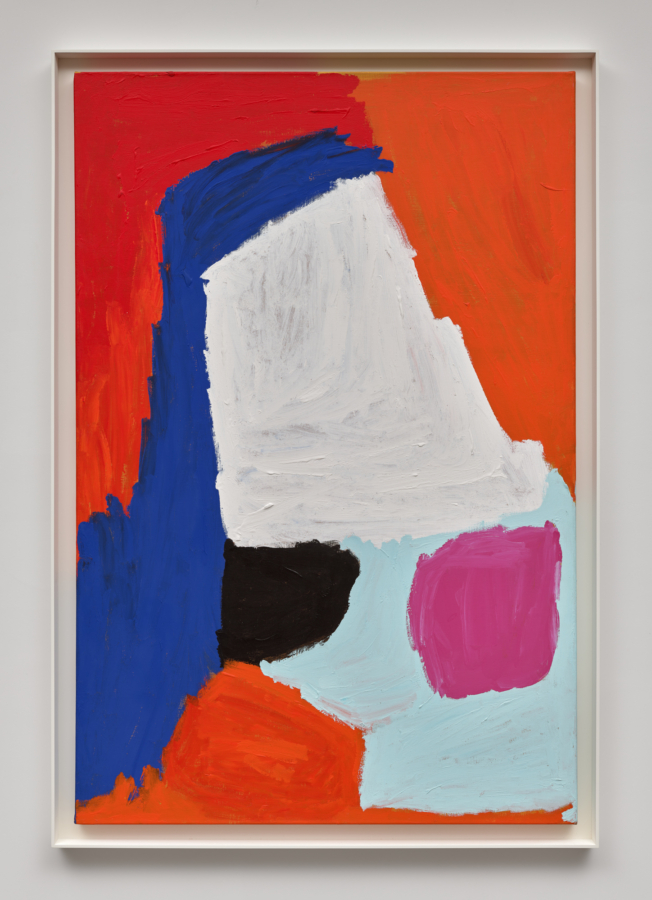Maja Ruznic
Consulting With Shadows
January 13–February 26, 2022
Karma
188 & 172 East 2nd Street
New York
Maja Ruznic
Consulting With Shadows
January 13–February 26, 2022
Karma
188 & 172 East 2nd Street
New York
Karma is pleased to present Consulting With Shadows, a solo exhibition of paintings by Maja Ruznic. The exhibition will be held at 188 and 172 East 2nd street, and is Ruznic’s inaugural solo exhibition with Karma.
Ruznic invokes the profundity of shadows with her palette, evidencing the beauty and clarity that can emerge from literal—and psychological—darkness. “Noticing color at night is like receiving an unexpected gift,” she explains. Formed in the crucible of sleepless nights after the birth of her daughter, while struggling with postpartum depression, Ruznic’s recent work depicts permutations of a family unit: Father; Daughter; Mother & Child; Mother & Father; Father Daughter Mother. Blurred forms bleed into one another on deep, jewel tones. So too, personal and ancient history blends with Ruznic’s treatment. The real night intermingles with the psychological night of anguish and melts into the mythic underworld. Personal experiences of motherhood are saturated by her own exploration of the Sumerian goddess Inanna, who journeys to a world of shadows.
Ruznic begins with rich pigment on linen, layering translucent stains to produce a diaphanous and almost magical quality. She pulls out figures from the surface, using opaque oils to further detail the found forms. The final product is the result of deep looking: through her delineation, indistinct forms take the shape of torsos and bodies, assembled in individual and group portraits. In Mother (Green Hand), (2021), a female figure glances downward, her hands clasped in her lap, while a spectral, disembodied hand hovers above her left shoulder. Father & Child (Ochre), (2021) depicts a standing man holding a baby in one arm, a version of her own husband and child. Their faintly described purple and teal figures echo a similarly-toned gridded backdrop, and a dimly glowing iridescent handprint on the man’s torso indicates the presence of an invisible ‘other’—one that has visually, and perhaps symbolically, left their mark on the pair. These idiosyncratic inclusions reflect how Ruznic has come to view the roles of her new family unit: interrelated and interdependent.
In more abstract works, Ruznic teases the senses with texture and color: faint forms barely peek through large swaths of deep-hued paint, evoking the comfort and darkness of the womb. Two paintings show the influence of Rothko through brushy sweeps of one color group, and engender the spiritual through their titles of Re-Birth. In several works titled Father Daughter Mother, a sequence of triangles evokes Ruznic’s own tripartite family structure, and points to the universality of this structure through the form’s repetition.
Around the time of her daughter’s birth, Ruznic considered the Sumerian myth of the goddess Inanna, and her turbulent yet rehabilitating journey to visit the Queen of the Night in the underworld. Drawing comfort from this allegory of courage during her own tempestuous, sleepless nights, Ruznic came to view her insomnia as a psychological pilgrimage: nocturnal excursions into the self that provided reflection, cleansing, and ultimately renewal. To be sleepless at night is to touch the shadow of the self, to commune more honestly with desire, and to bear witness as personal hardships converse with their archetypal forms. For Ruznic, it is the dark that reveals this vibrant world, where colors bloom, in which all things are reborn.
The exhibition is accompanied by a forthcoming comprehensive, fully-illustrated monograph, featuring a newly commissioned essay by Anne Boyer and a conversation between Jordan Kantor and Maja Ruznic.



